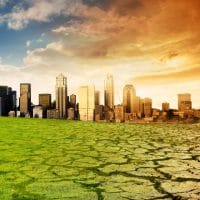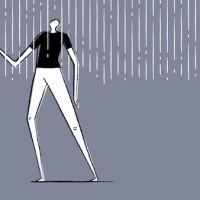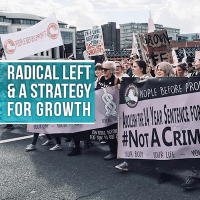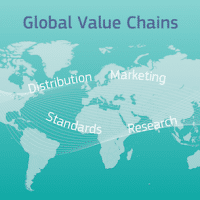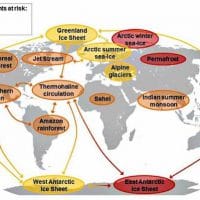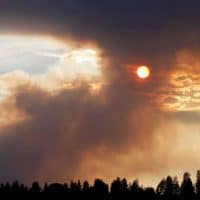-
The Trump Administration’s continued attack on science
As of August 14, the federal government has attempted to censor, misrepresent, and otherwise stifle science over 150 times.
-
‘We would be opening the heavens to war’
CounterSpin interview with Karl Grossman on the weaponization of space.
-
Social reproduction: what’s the big idea?
Key to social reproduction theory (SRT) is an understanding of the ‘production of goods and services and the production of life are part of one integrated process’, or in other words: acknowledging that race and gender oppression occur capitalistically.
-
18 theses on Marxism and animal liberation
Marxist critique of society remains incomplete if it does not consider the fact that, to make profits, the ruling classes have not only exploited the oppressed classes within the history of class struggle, but also and always animals (and nature).
-
There is still time for an ecological revolution to prevent hothouse earth
The only thing that could alter this dire situation, all over the world, is the rise of another power in society. We need not millions but hundreds of millions of people, necessarily predominantly working class, in the street day in and day out.
-
Geoengineering and environmental capitalism
There are two basic categories of geoengineering technologies. The first is a suite of technologies that aim to reduce the amount of incoming sunlight to artificially cool the climate, Solar Radiation Management (SRM). Proposed SRM projects include shooting aerosols into the stratosphere andbrightening clouds or ocean surfaces to reflect sunlight back into space.
-
Is climate the worst casualty?
If we don’t get serious about stopping the U.S. war machine, we could lose the biggest battle of our lives.
-
Is nuclear power a solution to the climate crisis?
Faith that environmental catastrophe can best be avoided by technological gadgetry rather than a change in social relationships received a big shot in the arm with the May 2018 publication of Energy: A Human History by prolific author Richard Rhodes. Rhodes profoundly misses the connection between technology and class relationships when he presents nuclear power as a socially neutral source of energy. Rather than pointing to a solution for climate change, his radiation denial mirrors Donald Trump’s climate denial in its derogation of scientific research and its personality attacks.
-
It is imperative to reconstruct the Internationale of workers and peoples
For the last thirty years the world system has undergone an extreme centralization of power in all its dimensions, local and international, economic and military, social and cultural.
-
What is behind Facebook deleting teleSUR English’s page?
Suddenly without warning, between 4 and 5 pm on Monday, August 13th, the Facebook page of teleSUR English was unpublished for the second time this year.
-
The radical left & a strategy for growth
The present social order is showing remarkable signs of decay. Slowing economic dynamism and growing geopolitical rivalries have produced a dangerous and chaotic world.
-
Imperialism in the 21st Century
Imperialism has taken a new form in the 21st century in the shape of global value chains or global production networks. The GVCs involve the utilisation by lead firms from headquarter economies of differences in international labour costs or international labour arbitrage to earn superprofits or rents. This article deals with the economic mechanisms and processes in producing various types or forms of imperialism.
-
Capitalism vs. water
Capitalism vs. water.
-
Climate change in the Anthropocene: an unstoppable drive to Hothouse Earth?
Leading Earth System scientists warn: “The Earth System may be approaching a planetary threshold that could lock in a continuing rapid pathway toward much hotter conditions.… Incremental linear changes to the present socioeconomic system are not enough to stabilize the Earth System.”
-
Death of a Marxist
Amin’s thesis—in economics—was written while he was active in the French Communist Party. In the thesis, he thought hard about the problems of his native land and other countries despoiled by the colonial menace. For Amin, as with other dependency theorists, the Third World suffered from theft, plunder as well as deindustrialisation, and then unequal exchange.
-
In memoriam: Samir Amin
Samir Amin, the renowned Marxist thinker and economist, passed away on August 13 in Paris. Born in Cairo on September 3, 1931, to an Egyptian father and a French mother, he had his initial education in Egypt before moving to Paris where he obtained his doctorate in Political Economy.
-
Samir Amin stood for people
Samir Amin transcends all borders capital creates to divide peoples struggling against exploiters, against all divisive politics, against all sectarian ideologies, which serve imperialism. Samir Amin stands for a modern life for peoples while opposes all backward ideas and ideologies serving exploiters.
-
A note on Samir Amin
Samir Amin’s work will provide inspiration to revolutionaries in their struggle against capital for many years to come.
-
The hope of ecosocialism
“The gross irrationality of our economic and social system is a measure of what we could do to improve the lives of people and the environment.”
-
A NATO-funded team is advising Facebook on flagging ‘propaganda’
Last week, the company said it took down 32 suspicious pages and accounts that purported to be run by leftists and minority activists. While some U.S. officials said they were likely the work of Russian agents, Facebook said it did not know for sure.





